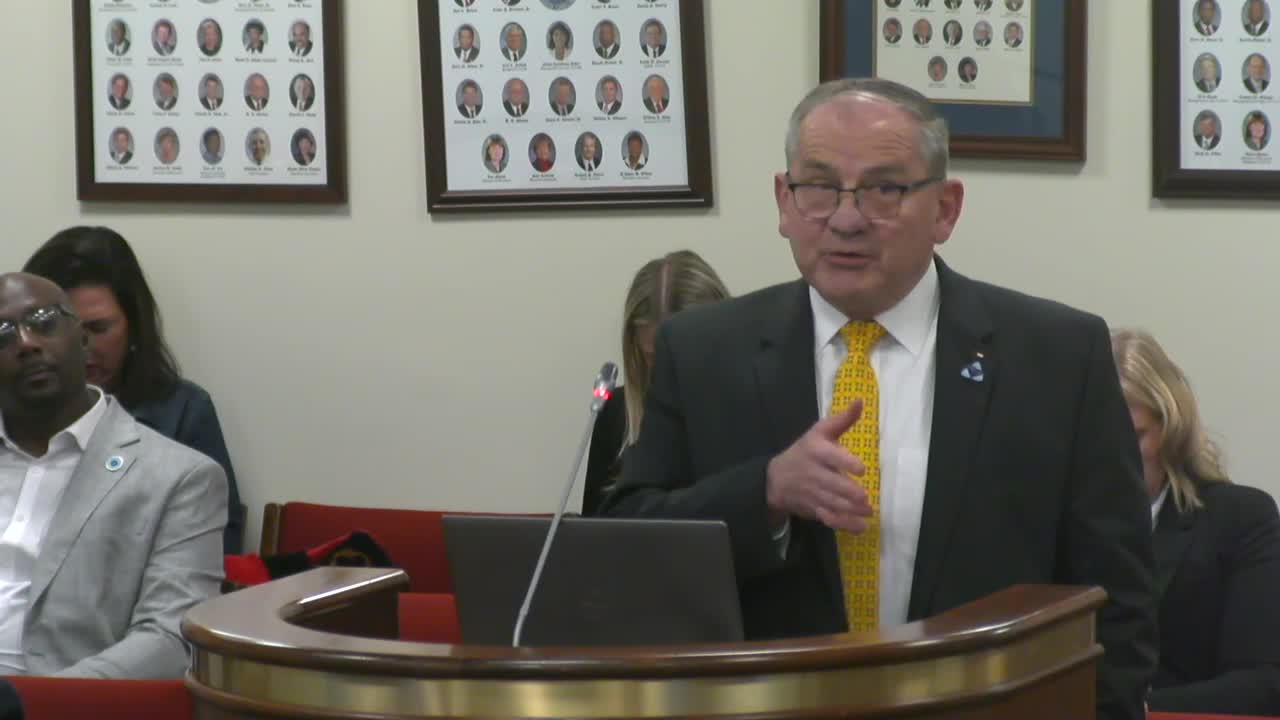Carlos Shwedo presents DMV modernization plan emphasizing security and efficiency
May 01, 2025 | 2025 Legislative Meetings, South Carolina
This article was created by AI summarizing key points discussed. AI makes mistakes, so for full details and context, please refer to the video of the full meeting. Please report any errors so we can fix them. Report an error »

During a recent meeting of the South Carolina Judiciary Committee focused on tort reform, significant discussions emerged regarding the implications of converting taxes into fees, particularly in relation to road use. A committee member expressed concerns that this conversion may violate constitutional principles, highlighting the financial burden it places on the state, which is projected to collect around half a billion dollars without providing necessary resources for new initiatives.
The conversation shifted to the modernization of driver's licenses, with a proposal for centralized issuance set to begin in September. This change aims to enhance security features of driver's licenses, addressing concerns about the ease with which fraudulent cards can be created. The committee member emphasized the need for a more secure system, suggesting that future mobile driver's licenses could incorporate advanced biometric technologies, such as facial recognition and retina scans, to prevent fraud and save the state significant amounts of money.
The discussions also touched on the importance of collaboration among committee members to address these issues effectively. The member expressed a willingness to engage in conversations about potential solutions, indicating a proactive approach to tackling the challenges faced by the DMV and the broader implications for state resources.
As the meeting concluded, the atmosphere reflected a mix of seriousness regarding the topics discussed and a sense of camaraderie among committee members. The focus on modernization and security in state services underscores the ongoing efforts to improve efficiency and protect against fraud, which are critical for the state's financial health and public trust. The anticipated changes in the DMV processes and the broader implications of tax and fee structures will likely continue to be pivotal topics in future legislative discussions.
The conversation shifted to the modernization of driver's licenses, with a proposal for centralized issuance set to begin in September. This change aims to enhance security features of driver's licenses, addressing concerns about the ease with which fraudulent cards can be created. The committee member emphasized the need for a more secure system, suggesting that future mobile driver's licenses could incorporate advanced biometric technologies, such as facial recognition and retina scans, to prevent fraud and save the state significant amounts of money.
The discussions also touched on the importance of collaboration among committee members to address these issues effectively. The member expressed a willingness to engage in conversations about potential solutions, indicating a proactive approach to tackling the challenges faced by the DMV and the broader implications for state resources.
As the meeting concluded, the atmosphere reflected a mix of seriousness regarding the topics discussed and a sense of camaraderie among committee members. The focus on modernization and security in state services underscores the ongoing efforts to improve efficiency and protect against fraud, which are critical for the state's financial health and public trust. The anticipated changes in the DMV processes and the broader implications of tax and fee structures will likely continue to be pivotal topics in future legislative discussions.
View full meeting
This article is based on a recent meeting—watch the full video and explore the complete transcript for deeper insights into the discussion.
View full meeting